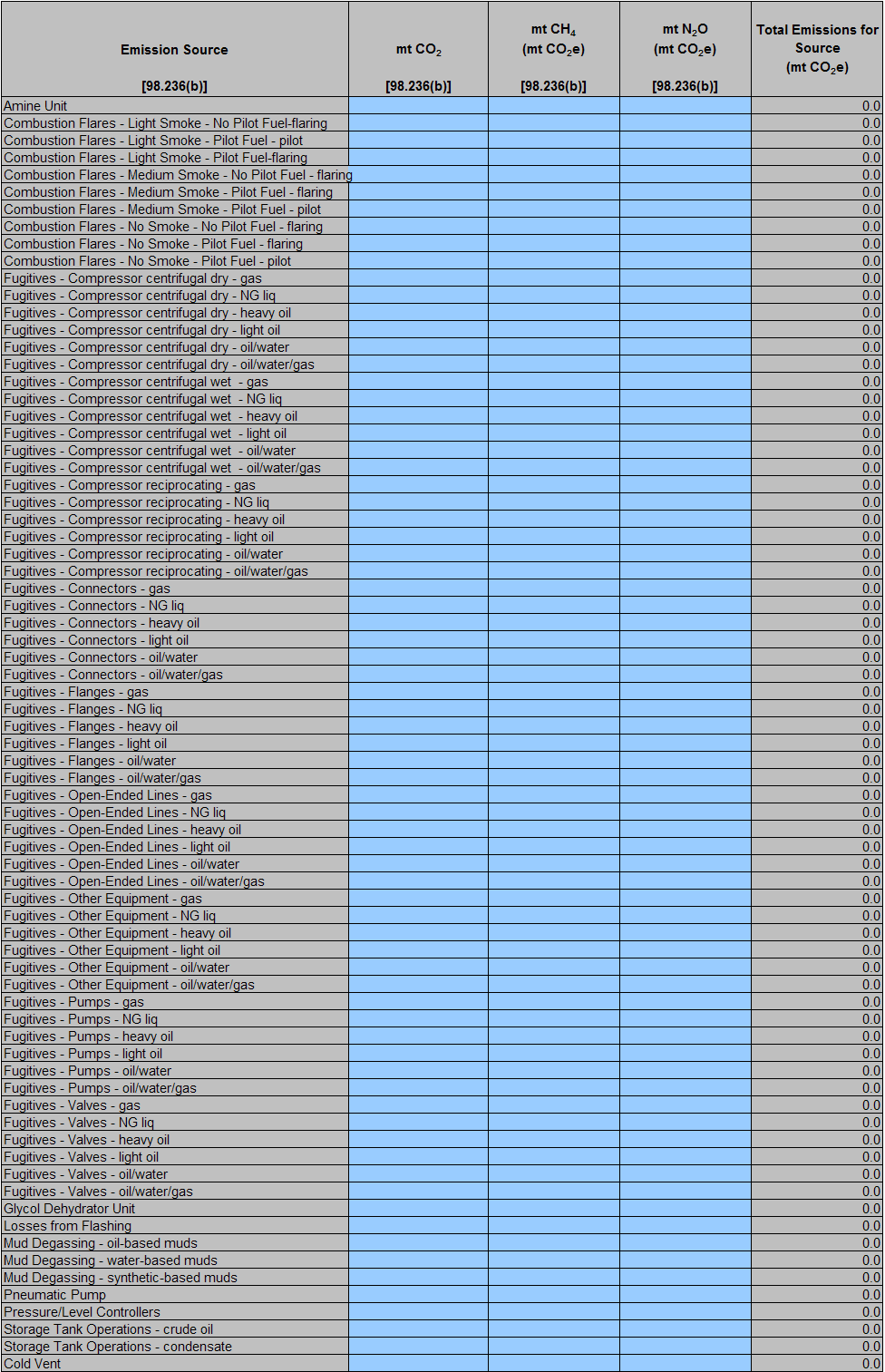Please see Reporting Form Instructions on downloading the blank reporting form and uploading the completed reporting form.
You may also refer to Optional Calculation Spreadsheet Instructions to download the Subpart W calculation spreadsheet.
This page provides an overview of the Subpart W offshore petroleum and natural gas production facilities source category reporting requirements.
The offshore petroleum and natural gas production source category is applicable to Offshore Petroleum and Natural Gas Production.
If the facility has the source type, the Best Available Monitoring Methods and Missing Data table must be completed.
- For further information, see Best Available Monitoring Methods and Missing Data Reporting.
Segment Definition
Offshore petroleum and natural gas production is defined as any platform structure, affixed temporarily or permanently to offshore submerged lands, that houses equipment to extract hydrocarbons from the ocean or lake floor and that processes and/or transfers such hydrocarbons to storage, transport vessels, or onshore. In addition, offshore production includes secondary platform structures connected to the platform structure via walkways, storage tanks associated with the platform structure and floating production and storage offloading equipment (FPSO). This industry segment does not include reporting of emissions from offshore drilling and exploration that is not conducted on production platforms. The industry segment consists of both platforms that are under the jurisdiction of the U. S. Department of Interior, Bureau of Ocean Energy Management, Regulation and Enforcement (BOEMRE) and those that are not.
Reporting Instructions
Note: BOEMRE was recently replaced by the Bureau of Ocean Energy Management (BOEM) and the Bureau of Safety and Environmental Enforcement (BSEE).
- 98.232(s)(1) Offshore production facilities under BOEMRE jurisdiction shall report the same annual emissions as calculated and reported by BOEMRE in data collection and emissions estimation study published by BOEMRE referenced in 30 CFR 250.302 through 304 (GOADS).
- For any calendar year that does not overlap with the most recent BOEMRE emissions study publication year, report the most recent BOEMRE reported emissions data published by BOEMRE referenced in 30 CFR 250.302 through 304 (GOADS). Adjust emissions based on the operating time for the facility relative to the operating time in the most recent BOEMRE published study.
- 98.232(s)(2) Offshore production facilities that are not under BOEMRE jurisdiction shall use monitoring methods and calculation methodologies published by BOEMRE referenced in 30 CFR 250.302 through 304 to calculate and report emissions (GOADS).
- For any calendar year that does not overlap with the most recent BOEMRE emissions study publication, report the most recent reported emissions data with emissions adjusted based on the operating time for the facility relative to operating time in the previous reporting period.
Determining if you are a GOADS or NON-GOADS reporter
GOADS reporters are those sources located in the western Gulf of Mexico Outer Continental Shelf (i.e., west of 87° 30’ West longitude). Non-GOADS reporters include all other offshore platforms, including sources located in State waters or areas outside of the Gulf of Mexico.
Reporting Requirements
For all equipment leaks, vented emission, and flare emission source types present, the facility must report:
- CO2 emissions (98.236(b))
- CH4 emissions (98.236(b))
- N2O emissions (98.236(b))
The total emissions roll-up at the top of the sheet reflects the sum of the CO2 equivalents of each gas emission reported for the source type. These summations are reflected and aggregated on the Introduction tab.Total Emissions



